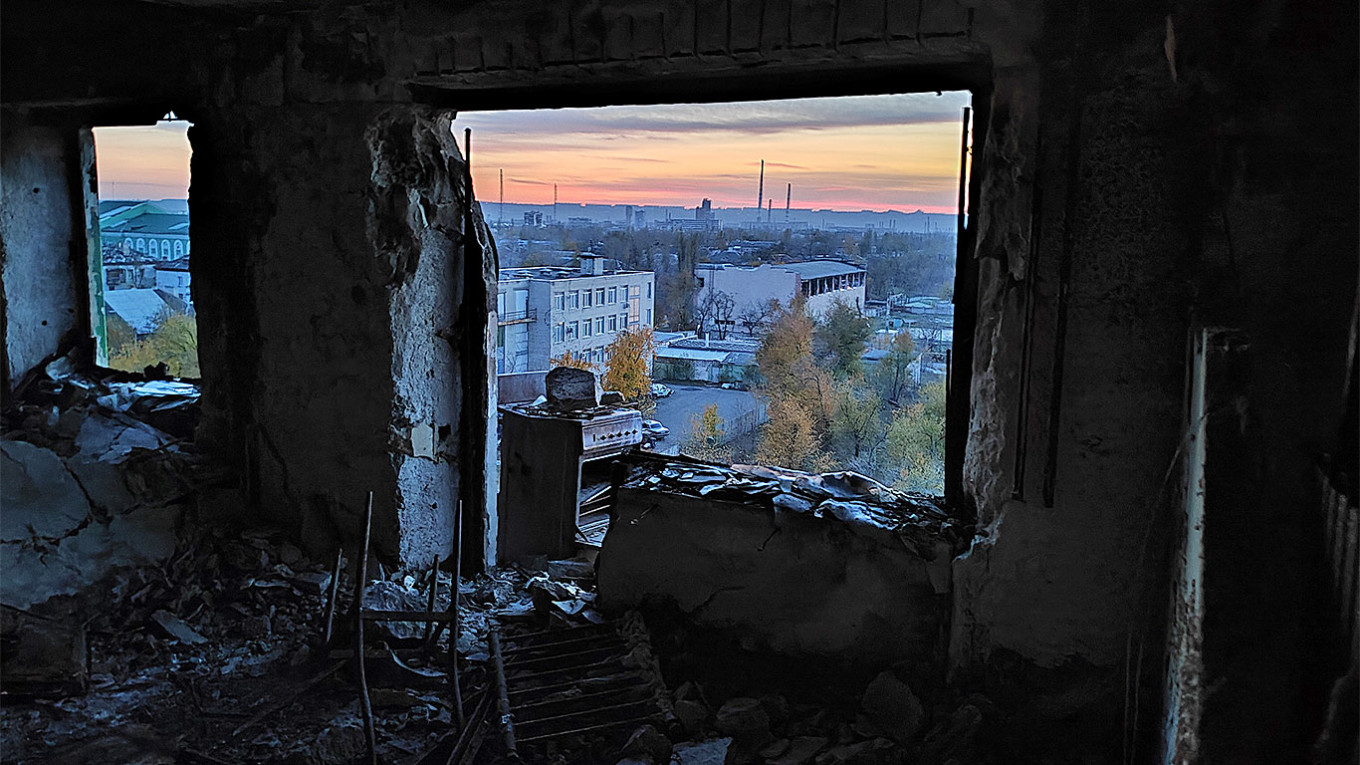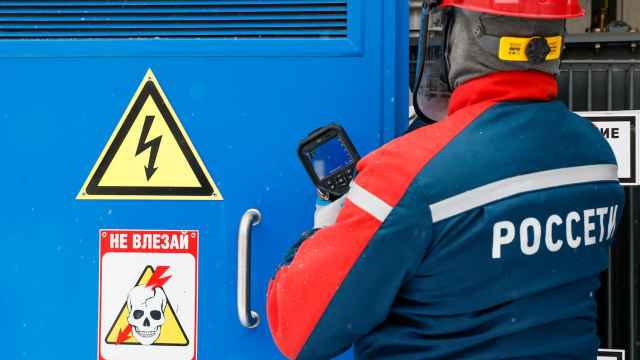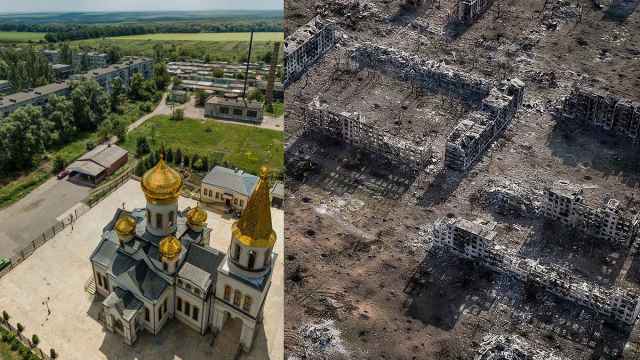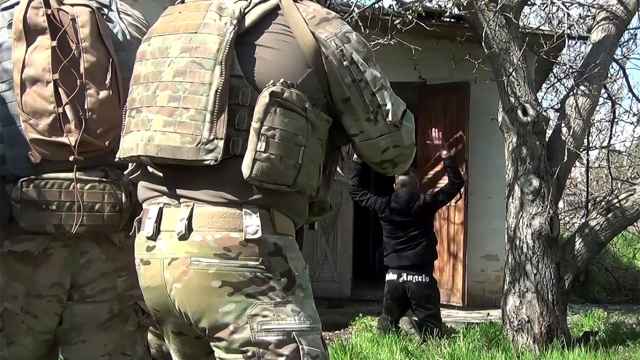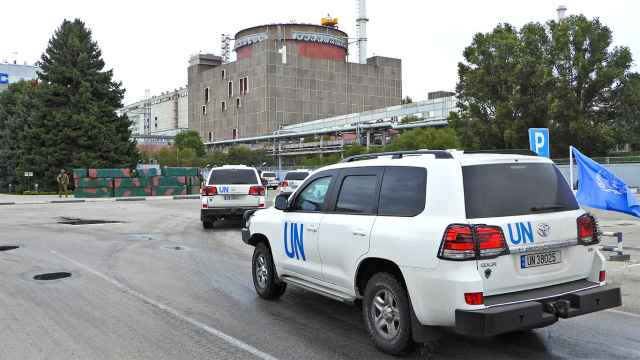SIEVIERODONETSK, Ukraine — Destroyed houses, scorched earth and trees shredded by shrapnel form the landscape on the road leading to Sievierodonetsk over a year after the city was captured by the Russian army.
Oleg, 59, sits alone in the courtyard of a residential building on the town’s outskirts destroyed by shelling.
His apartment on the eighth floor is no longer habitable and could collapse at any moment.
“I spent one night up there, and I could hear creaking all the time, it was terrifying,” Oleg says.
He is now living in temporary accommodation on the ground floor with no running water or heating. Just a few meters away, the carcass of a Ukrainian tank lies in a passageway between two buildings.
When Russia launched its full-scale invasion of Ukraine, Sievierodonetsk and neighboring Lysychansk made up the main stronghold of Kyiv's forces in the Luhansk region, which is now almost entirely under Russian control. The city fell at the end of June last year, after months of bombardment followed by weeks of bloody street-to-street combat.
While most of the local population fled during Russia’s siege, thousands stayed in underground shelters without heating, electricity, or running water.
"We thought it would be over soon," remembers Oleg, who spent three months in a church basement.
According to official statistics, over 1,000 civilians died and around 80% of buildings were partially or completely destroyed during the battle.
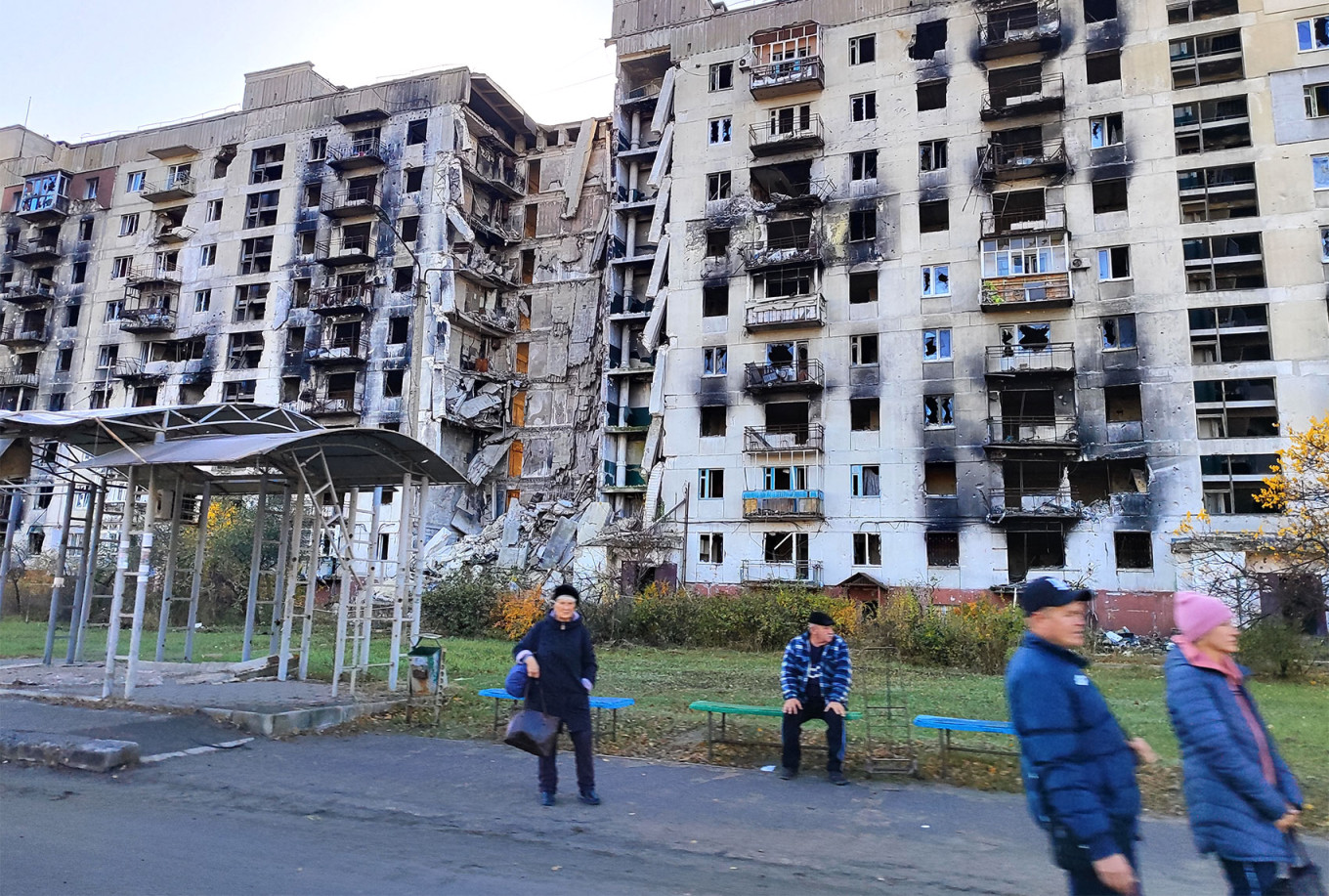
Today, the marks of war are visible everywhere in this once-thriving industrial city. Signs reading “No mines here” and “People live here” are painted on dilapidated facades throughout the city center.
“It used to be a very beautiful city,” recalls Andrei, 64, who sells electronic cigarettes in a local shop and lost a leg during the siege. “Now, there's no more life: only pensioners, elderly people, and the disabled remain.”
Andrei’s family fled Ukraine and found refuge in Germany. “I don’t think they will ever return,” he says.
The semi-deserted city streets are now filled with Russian propaganda: a photo installation showing Russia’s latest achievements in technology and culture can be seen on the city’s main square, forming a stark contrast with the surrounding desolation.
Not far from there stands a campaign billboard for United Russia, the winning party in September's local elections, the first to be held since Moscow claimed to have annexed the Luhansk region a year ago.
The elections, like the annexation referendum, were held despite the absence of the vast majority of residents, who still haven't returned. According to local authorities, 32,000 people currently live here compared to the city's pre-war population of 100,000.
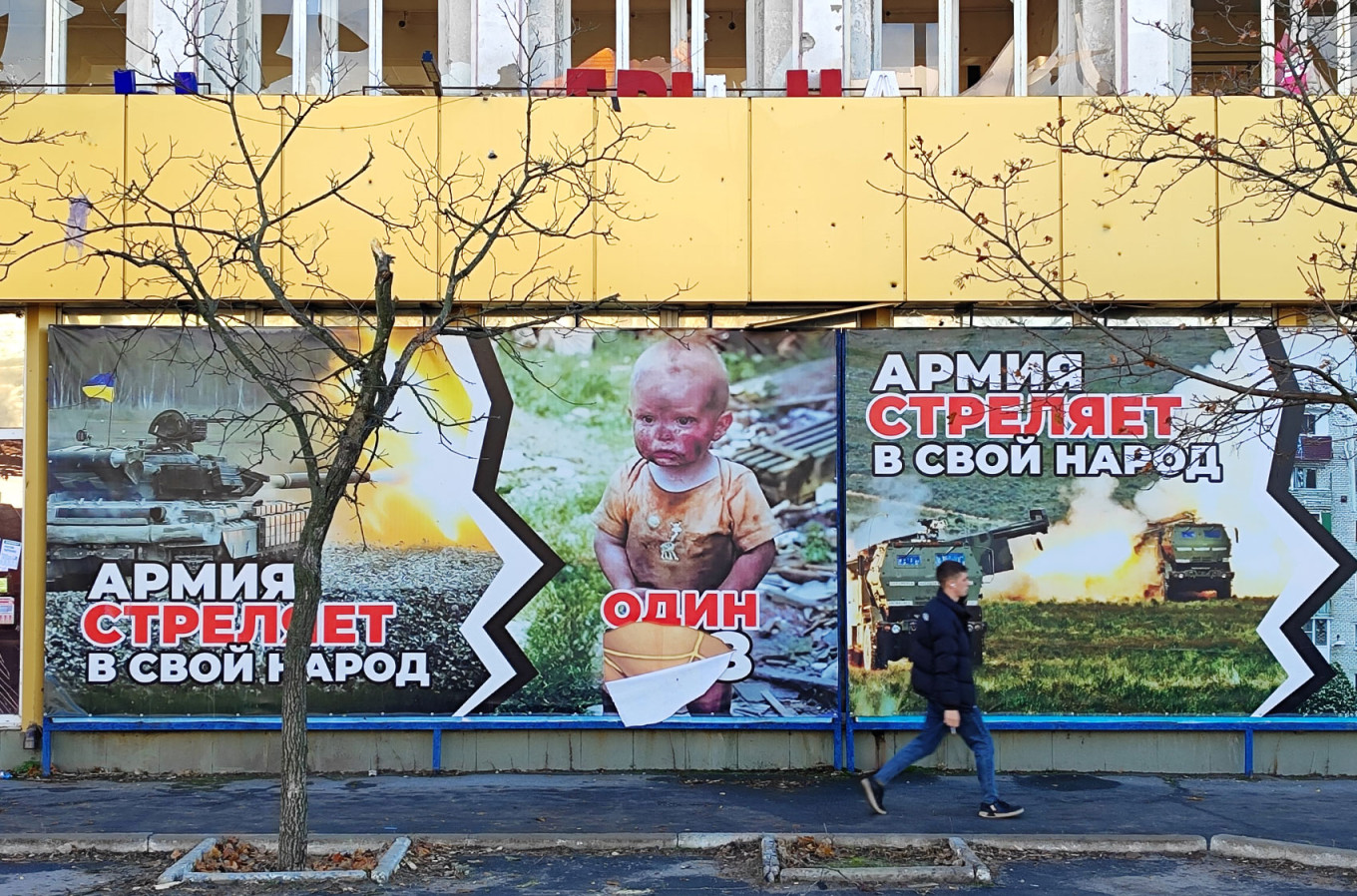
“Should we wait for them? No. The people living here now have the right to build their future,” explains Nikolai Morgunov, 52, the Russia-installed mayor of Sievierodonetsk.
A former Ukrainian politician, Morgunov took the side of pro-Russian rebels during the 2014 armed uprising in eastern Ukraine and served as mayor in the separatist-held town of Brianka.
He was appointed to head Sievierodonetsk last year, after Russian forces captured the city. When he first entered city hall, Morgunov recalls, he found anti-tank mines planted in the mayor's office by the previous administration.
"They wanted to blow me up, prevent me from restoring peaceful life in the city,” says Morgunov. “This is Ukraine!”
An armed man is guarding his office, and sandbags are piled up at the city hall's entrance.
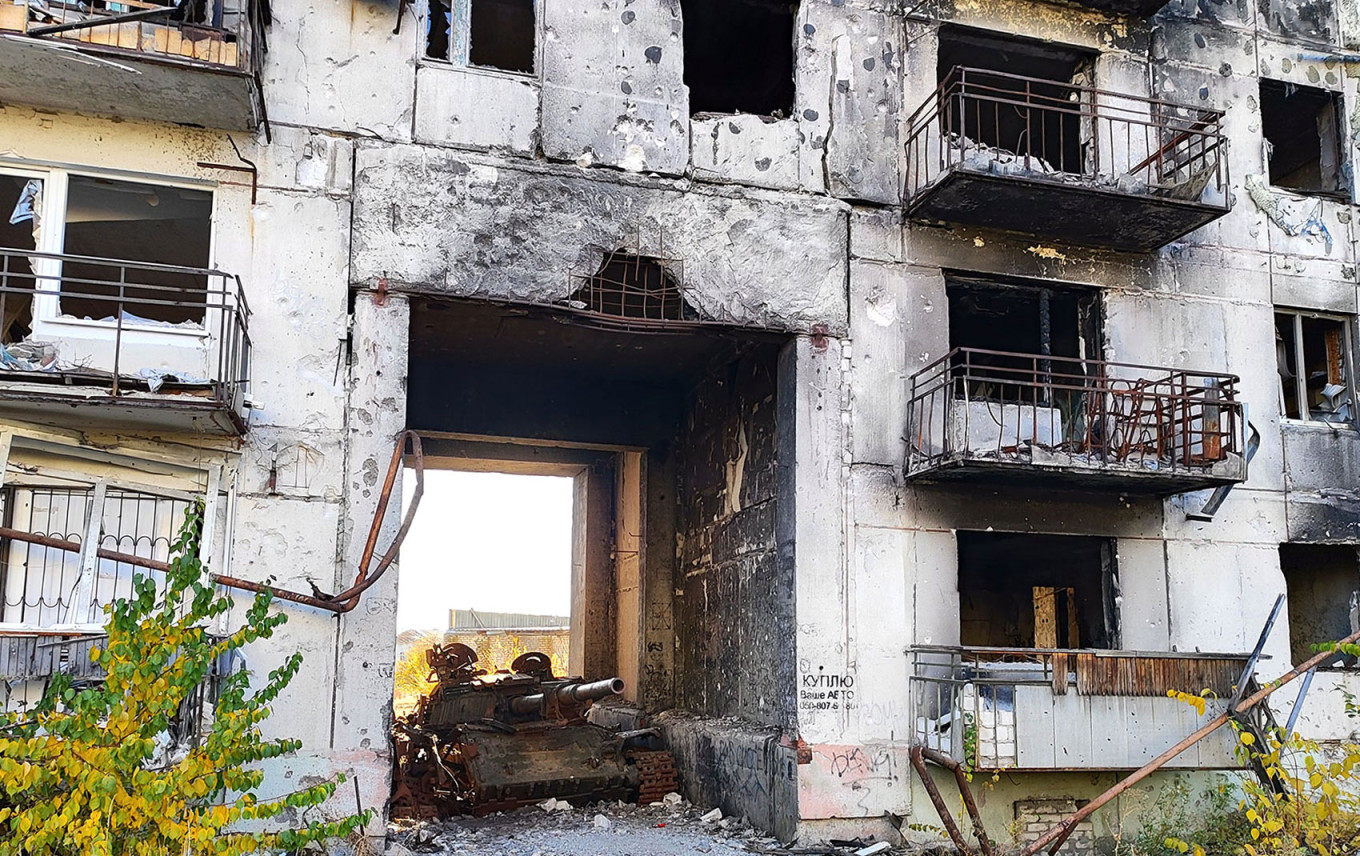
In the past year, Russia-sponsored reconstruction efforts have made modest progress: running water, gas, and electricity have been partially restored, but the majority of the buildings are still damaged or in ruins.
The proximity of the front line, only 30 kilometers away, complicates everything: long-range HIMARS rocket launchers and Storm Shadow missiles still pose a threat to the Russia-held city.
To prevent targeted attacks, local authorities cut off the mobile connection. Residents must travel to nearby towns to get in touch with the outside world.
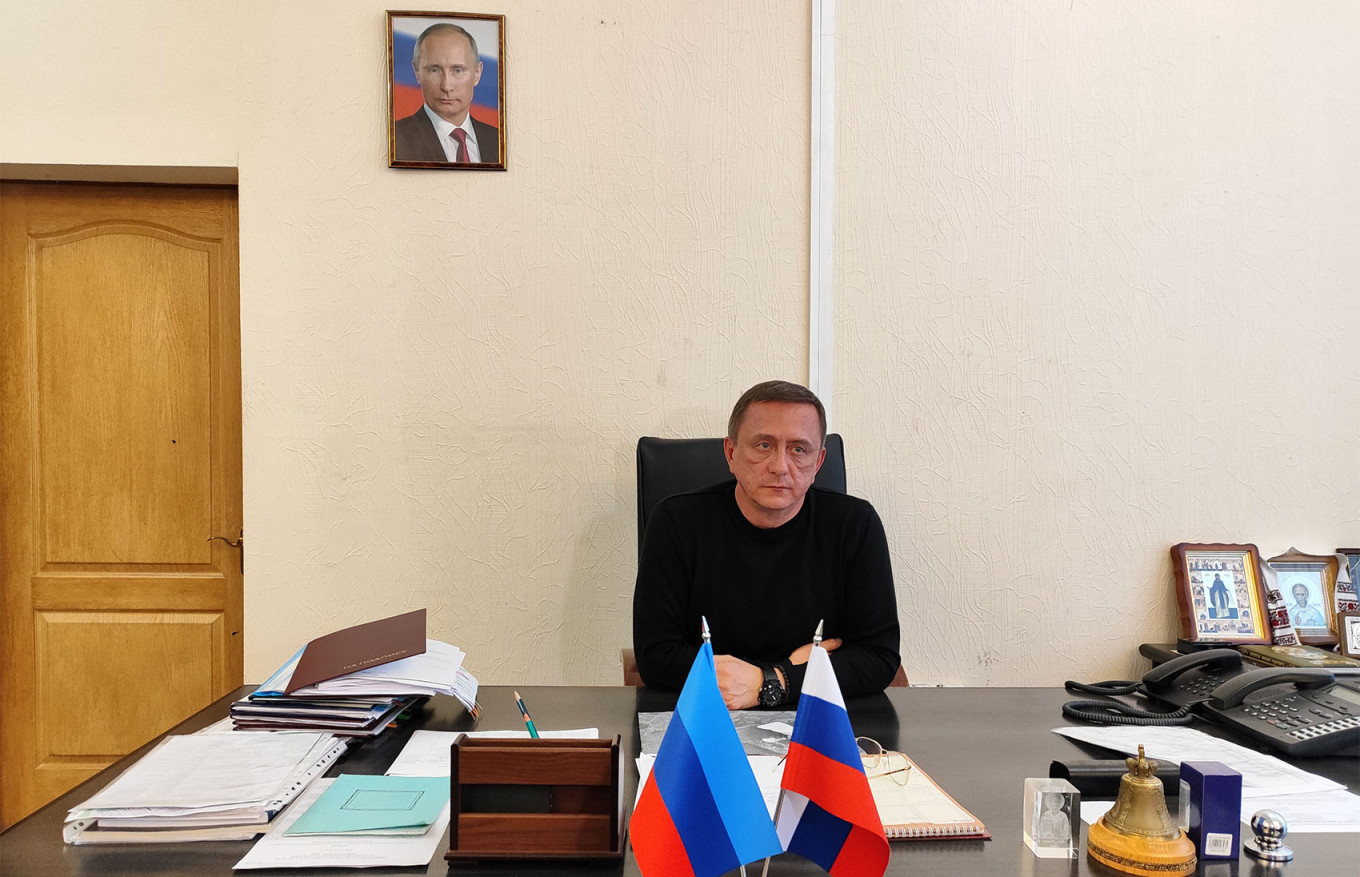
Though it was the Russian army that attacked the city, Morgunov blames Kyiv’s forces for the devastation.
“Who is responsible for this?: 100% the people who tried to transform a peaceful city into a human shield and hide behind its residents,” he says.
Despite dire conditions, life is slowly returning to Sievierodonetsk. A few schools have reopened, say local authorities, and small businesses resumed working.
“We waited for Russia for a long time,” says Svetlana, 58, a deli vendor at the city's central market.
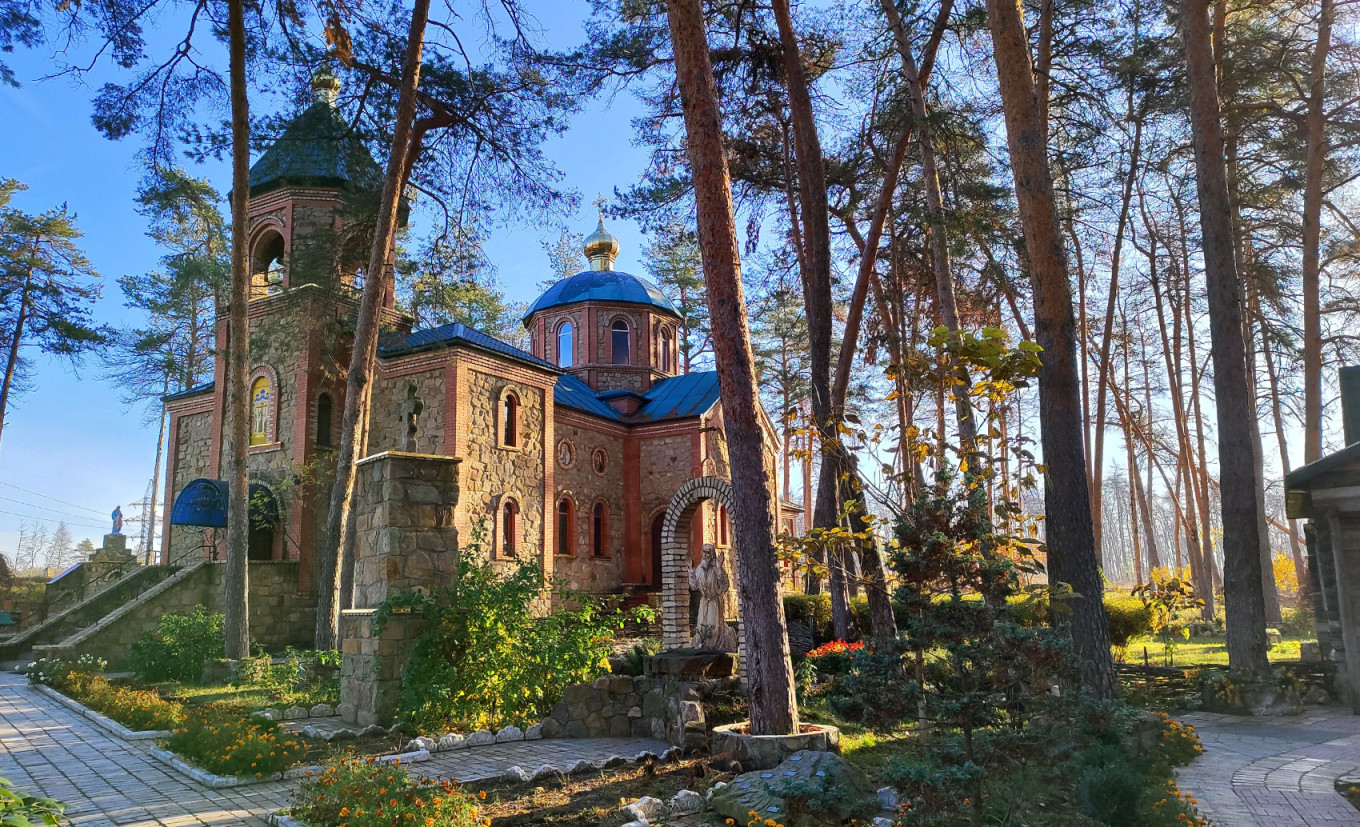
Like many of the remaining residents, she was dissatisfied with the government in Kyiv for policies that they felt discriminated against the local Russian-speaking population and imposed the use of the Ukrainian language in public places.
“They were treating us like second-class citizens,” says Svetlana, who voted in favor of what Russia calls the “reunification” with the Luhansk region last fall. "We've come back home, Ukraine no longer exists for me.”
"Donbas is Russia,” says Elena, 48, another vendor who welcomed the arrival of Russian troops.
She fled to Russia-controlled territory during the fighting and recently received Russian citizenship.
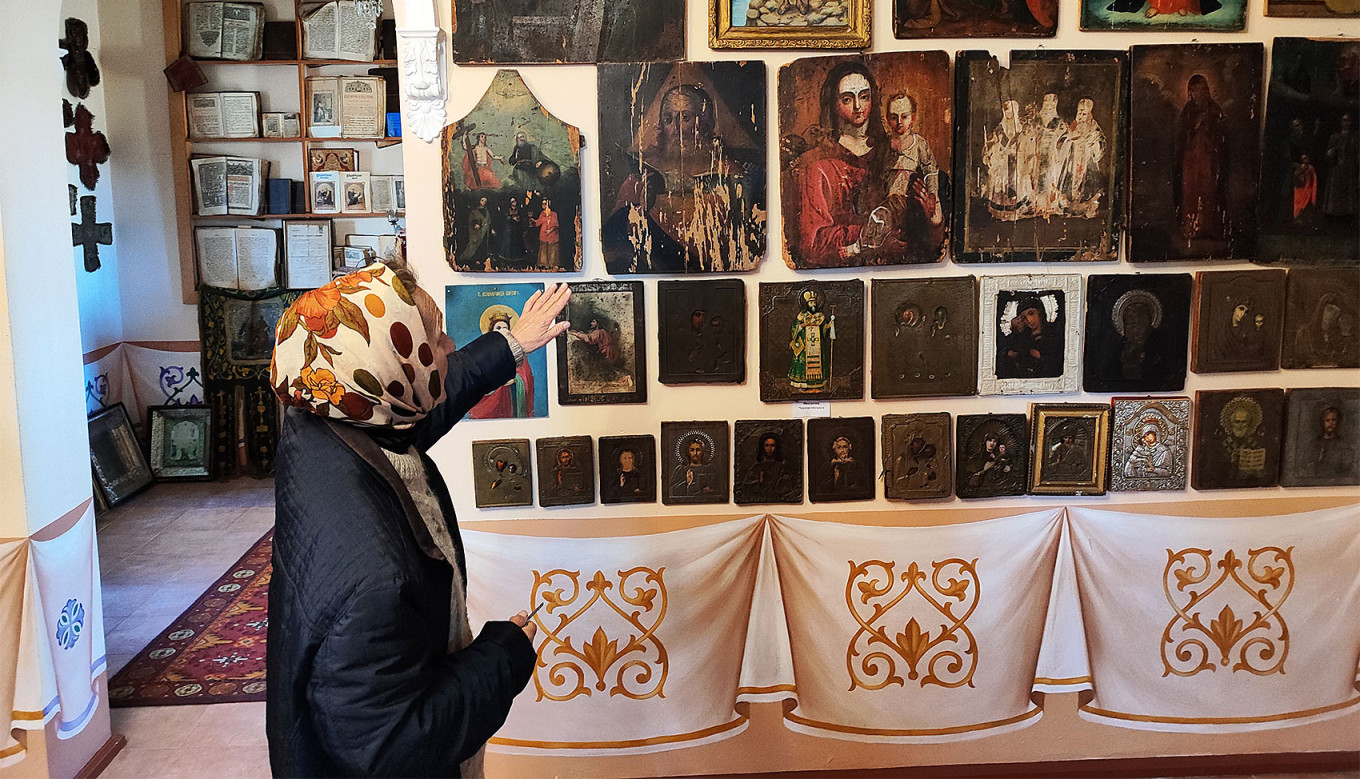
Residents who left for the West tend to have a more critical view of Russia.
Yulia, 32, fled the city with her entire family when the war started, found refuge in Poland, and now lives in Belgium. While her parents’ apartment is still intact, she doesn't plan to come back.
“I don’t want to live in Russia as a matter of principle,” she said. “For me, Russia is the aggressor country. They deprived me of my home, of my life.”
The fury of war largely spared the Orthodox sanctuary of Krestovozdvizhensky, located in a pine forest on the outskirts of Sievierdodonetsk: a corner of beauty amid the ruins.
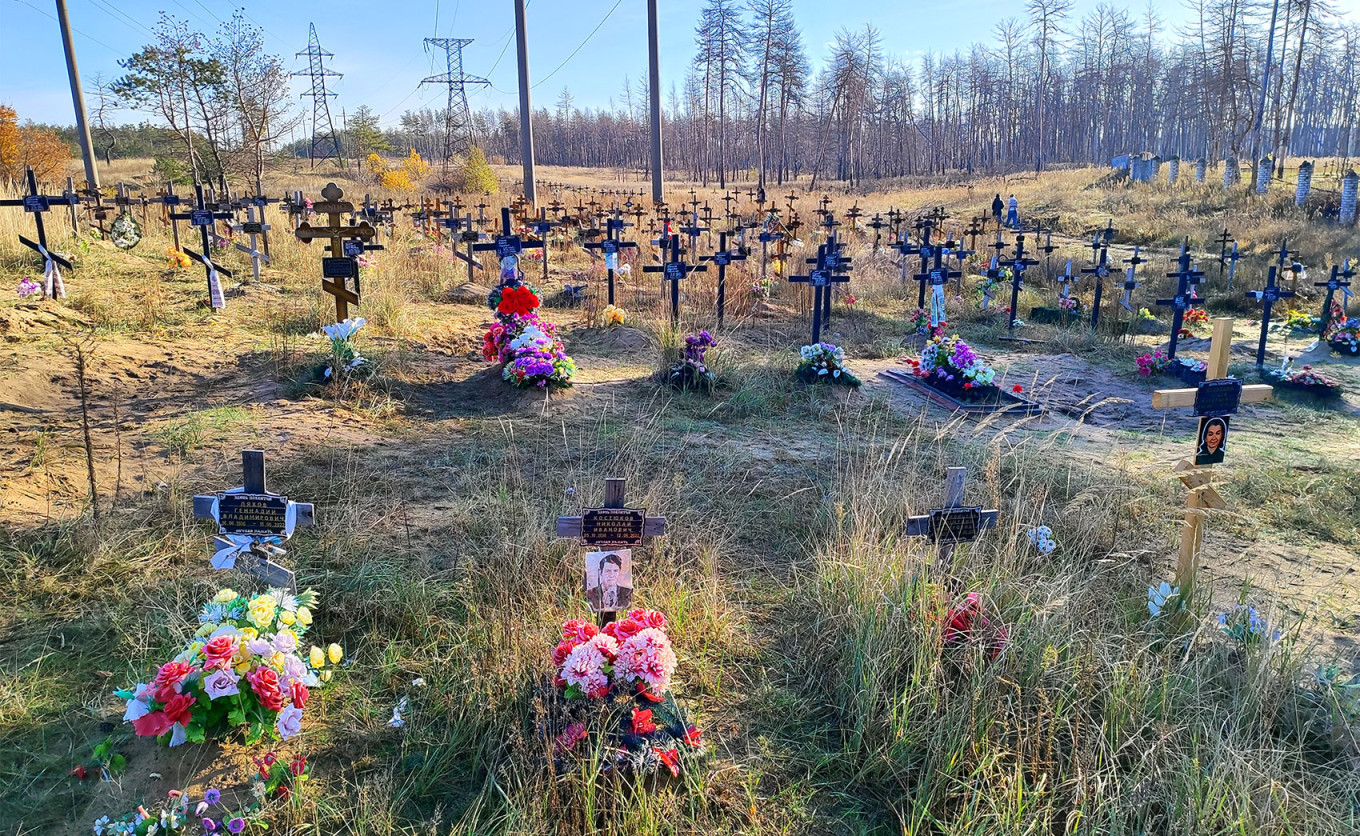
Liubov Alexeyevna, 68, the church keeper’s assistant, is collecting donations to repair the damage inflicted on the bell tower.
“We'll rebuild everything, God will give us everything,” says Liubov, who lost her apartment in the siege and now lives in the sanctuary.
Next to the church, in a thicket field, hundreds of wooden crosses have been planted, some decorated with pictures and flowers. They are the graves of civilians killed during the city's siege and buried in an improvised cemetery.
The silence is only broken by the distant artillery fire.
“I don't understand this war, what it is for,” Alexeyevna says. “But if God allowed it, it means we are guilty.”
A Message from The Moscow Times:
Dear readers,
We are facing unprecedented challenges. Russia's Prosecutor General's Office has designated The Moscow Times as an "undesirable" organization, criminalizing our work and putting our staff at risk of prosecution. This follows our earlier unjust labeling as a "foreign agent."
These actions are direct attempts to silence independent journalism in Russia. The authorities claim our work "discredits the decisions of the Russian leadership." We see things differently: we strive to provide accurate, unbiased reporting on Russia.
We, the journalists of The Moscow Times, refuse to be silenced. But to continue our work, we need your help.
Your support, no matter how small, makes a world of difference. If you can, please support us monthly starting from just $2. It's quick to set up, and every contribution makes a significant impact.
By supporting The Moscow Times, you're defending open, independent journalism in the face of repression. Thank you for standing with us.
Remind me later.


